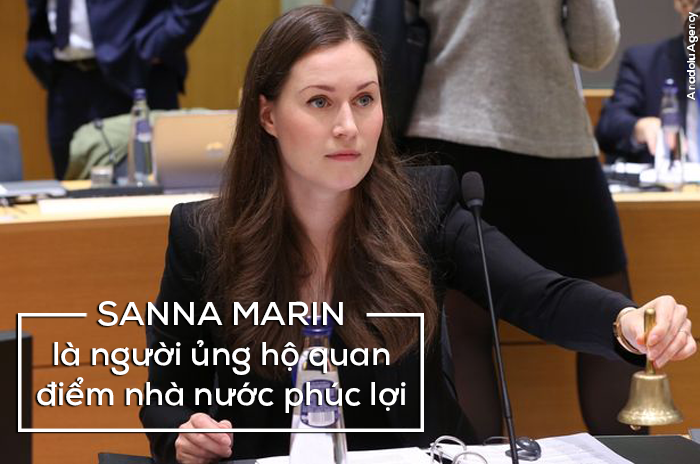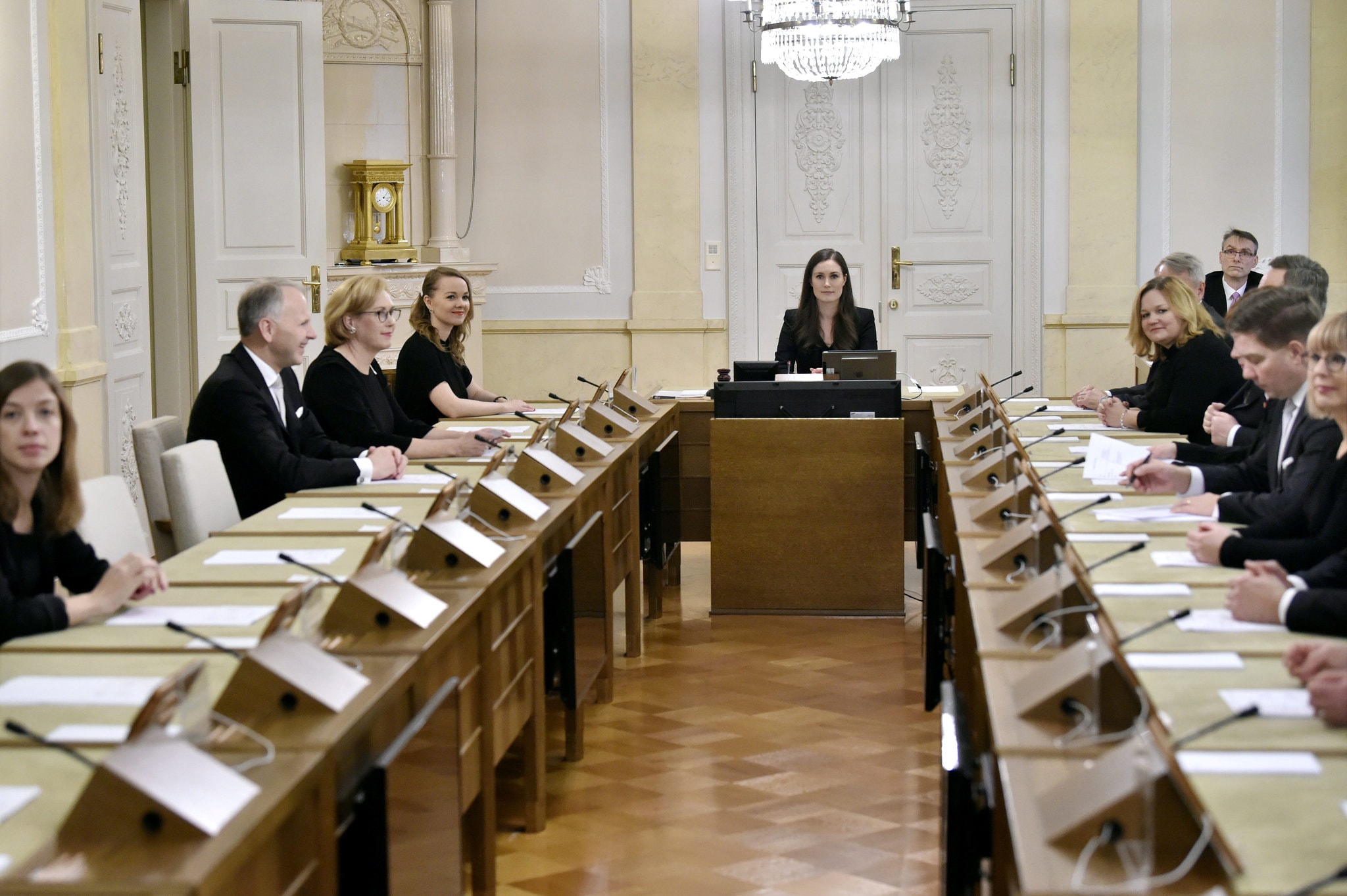Sanna Marin - The 'star' signaling a change in Finnish politics
(Baonghean) - Becoming the youngest female prime minister in the world at the age of 34, Sanna Marin deserves to be called a "rising star" of Finnish politics. That signals a new dawn for the politics of this Nordic country.
Efforts to overcome circumstances
A wave of young leaders taking power is increasingly popular around the world. From New Zealand to Canada, from France to Austria, they bring a new color to international politics, creating attraction and freshness in the eyes of the public. The appearance of the new Finnish Prime Minister Sanna Marin is also considered to be part of this trend. However, what makes her different is her humble origin.
Sanna Marin was born into a working-class family. Her parents separated when she was very young and her mother had to raise her children alone for the first years of her life. The financial burden of the family was something that haunted Marin throughout her childhood.
On her personal blog, Sanna Marin described the first time she looked for a part-time job at a bakery when she was 15. She also delivered newspapers to earn extra income when she was in high school. But the hardships of her childhood were not limited to that.
 |
In a 2015 interview with Finnish website Menaiset, Marin recalled her humiliating childhood when she had to face public criticism because of her family background. Her mother lived with her gay partner after her marriage broke down. There were times when Sanna Marin felt like an “invisible person” at school because she was shunned. She also couldn’t talk openly about her family. But the only positive thing was that her mother always talked to Marin to share. She made her believe that life was her decision and she could accomplish anything she wanted. Sanna Marin became the first member of her family to graduate from high school and go on to university.
Political success does not wait for age
Sanna Marin entered politics at the age of 20. Two years later, she officially entered politics by running for a position in the Tampere City Council - a city north of the capital Helsinki. Although she failed, her first election also gave her her first political experience, opening up future opportunities. During the next 5 years, despite her efforts, Sanna Marin still could not achieve her goal of having a seat in the city council. However, she did not have to be sad because in the end, she was chosen to be the leader of the Council at the age of 27.
 |
| Sanna Marin (second right) and female members of the Finnish Government at a press conference announcing the new Government in Helsinki. Photo: Reuters |
Since then, the career of young female politician Sanna Marin has been on the rise. She was quickly promoted to a high position in the Social Democratic Party (SDP) - a center-left party in Finland. In 2015, Marin became an MP of the SDP. Sanna Marin is considered to be part of the left-wing group in the SDP, and is an ardent supporter of the concept of a welfare state in Finland. As a member of the National Assembly, Sanna Marin quickly "scored points" with SDP leader Antti Rinne.
Shortly after entering parliament, Marin became Antti Rinne’s deputy and confidant. Sanna Marin’s real break came last winter when Rinne contracted pneumonia during the holidays. He was later diagnosed with coronary atherosclerosis, a condition that prevented him from returning to work when the SDP needed him most. That was when the Finnish election campaign had officially begun.
The opportunity to reach the top and shine came to Sanna Marin at that moment, when she was still in her first term as a member of parliament. Marin ran the SDP on behalf of the party chairman during Rinne's sick leave. The victory of the SDP in that year's general election thus also marked the young politician Sanna Marin.
 |
| Sanna Marin speaks to reporters at the Parliament building on Tuesday (December 10, 2019). Photo: EPA |
Courage to face storms
After that election, Marin was appointed as Minister of Transport and Communications in the new government. But she did not have much time to show her ability because the storms kept coming.
Prime Minister Antti Rinne's government has been criticised for its handling of a wave of strikes by postal workers that began in mid-November. They were protesting against the state-owned delivery company's decision to cut the wages of around 700 employees in September. Finland's ruling coalition has demanded an explanation from Rinne, but the Centre Party said his arguments were "unacceptable". The pressure forced Rinne to resign after just a few months in office. Sanna Marin was elected as his replacement by a narrow margin in a vote on Sunday, December 8.
 |
The pressure is not small, but Sanna Marin remains steadfast in the face of the storm. She ignores questions about her ability and suitability for the high position. “I never think about my age or gender. I only think about the reasons that brought me into politics and about the values, the goals that have helped us win the trust of voters,” Sanna Marin replied immediately after being elected as prime minister.
Perhaps Sanna Marin realized the work ahead when she made that announcement. Soon after she took up her new role, more protests broke out, threatening the growth of many of the Scandinavian country’s biggest companies.
Meanwhile, the Real Finns party - a populist party - won 25% of voter support, while the SDP and a partner in the ruling coalition, the Centre Party, are slightly declining. That is the problem that must be solved in the coming time, in the context of Sanna Marin not having much experience in top politics.
 |
| Prime Minister Sanna Marin chairs the first government meeting. Photo: Reuters |
Sanna Marin's rise also partly reflects a changing political landscape in Finland. In addition to Marin, the leaders of the other four parties in the Finnish government's governing coalition are all women, including three under the age of 34. That can also be considered an advantage for Sanna Marin at the moment. Former Finnish Prime Minister Alexander Stubb, in a Twitter post, assessed that a government led by women shows that Finland is a "modern and progressive" country. "One day, gender will no longer be important in government, but pioneers," he wrote.

